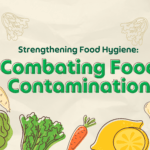In the food industry, businesses face unique challenges and risks that require specialized insurance solutions. Among these, general liability insurance stands out as a critical component for protecting food businesses from a wide range of potential claims and liabilities. This article explores the importance of general liability insurance for food-related businesses, detailing its coverage, benefits, and practical applications within the industry.
Understanding General Liability Insurance
General liability insurance is a type of coverage designed to protect businesses from financial losses resulting from various liability claims. It covers legal and financial costs associated with claims for bodily injury, property damage, and personal or advertising injury. For food businesses, this insurance is particularly crucial due to the high risks associated with food handling, preparation, and service.
Importance of General Liability Insurance in the Food Industry
- Mitigating Risk Exposure
The food industry is inherently fraught with risks, from foodborne illnesses to accidents on the premises. General liability insurance helps mitigate these risks by providing coverage for claims related to bodily injury, property damage, and more. For instance, if a customer suffers food poisoning after dining at your restaurant, this insurance can help cover medical expenses and legal fees. - Compliance with Legal Requirements
Many jurisdictions require businesses to carry general liability insurance as part of their operating permits or licenses. For food businesses, adhering to these regulations is essential to maintain legal compliance and avoid potential fines or penalties. - Protecting Business Assets
Lawsuits and liability claims can be financially devastating, particularly for small and medium-sized food businesses. General liability insurance helps protect your business assets by covering legal costs, settlements, and judgments that could otherwise drain your financial resources. - Enhancing Business Reputation
Having adequate insurance coverage not only protects your business financially but also enhances your reputation as a responsible and reliable operator. Customers and partners are more likely to trust businesses that are adequately insured, which can positively impact your brand image and customer loyalty.
Key Coverage Areas for Food Businesses
- Bodily Injury
Description: This coverage protects against claims for physical injuries sustained by individuals on your premises or as a result of your operations.
Examples:- A customer slips and falls in your restaurant, resulting in a broken leg. General liability insurance covers their medical expenses and any legal claims filed.
- A delivery driver is injured while delivering supplies to your food establishment. This coverage can help pay for their medical costs and any related legal fees.
- Property Damage
Description: Covers damages to third-party property caused by your business operations or by employees while conducting business activities.
Examples:- During a catering event, an employee accidentally spills a large amount of food and damages a client’s valuable carpet. This insurance can help cover the cost of repairs or replacement.
- If a fire started in your kitchen accidentally damages a neighboring business’s property, general liability insurance can assist with the compensation.
- Personal and Advertising Injury
Description: Protects against claims related to personal and advertising injuries, such as defamation, libel, slander, or false advertising.
Examples:- A competitor sues your business for defamation after a negative review or statement made in advertising. This insurance helps cover legal costs and potential settlements.
- Your business faces a lawsuit for unauthorized use of copyrighted images in promotional materials. General liability insurance can provide coverage for legal expenses and damages.
- Medical Payments
Description: Provides coverage for medical expenses incurred by individuals injured on your premises, regardless of fault.
Examples:- A customer cuts themselves on a broken glass at your restaurant. General liability insurance covers their medical bills even if the accident was not directly caused by negligence.
- An employee suffers a minor injury while handling food preparation equipment. This insurance helps cover their medical costs without the need for a formal lawsuit.
- Legal Defense Costs
Description: Covers the costs associated with defending your business in a lawsuit, including attorney fees, court costs, and other related expenses.
Examples:- If a customer files a lawsuit claiming they were served contaminated food, general liability insurance helps cover the costs of legal defense, including attorney fees and court expenses.
- Your business faces a claim for property damage caused by an employee. This coverage assists with the legal costs of defending against the claim.
Real-Life Scenarios: How General Liability Insurance Protects Food Businesses
- Scenario 1: Food Poisoning Claim
A popular restaurant experiences a foodborne illness outbreak, and several customers report symptoms of food poisoning. Some customers file lawsuits seeking compensation for their medical expenses and pain and suffering. The restaurant’s general liability insurance covers the legal fees, settlements, and medical costs, helping the business manage the financial impact of the claims. - Scenario 2: Slip and Fall Accident
A customer slips on a wet floor in a bakery and sustains a serious injury. The customer files a lawsuit against the bakery for negligence. The bakery’s general liability insurance covers the medical expenses, legal fees, and any potential settlement or judgment, ensuring the business does not face financial hardship due to the claim. - Scenario 3: Property Damage
During a catering event, a server accidentally spills a beverage, causing significant damage to the client’s expensive flooring. The client demands compensation for the repairs. The catering company’s general liability insurance covers the cost of repairs, protecting the business from a costly out-of-pocket expense.
Choosing the Right General Liability Insurance Policy
- Assess Your Risks
Evaluate the specific risks associated with your food business, including food handling practices, customer interactions, and property use. Understanding your risk exposure helps determine the appropriate level of coverage needed. - Review Policy Options
Compare different insurance providers and policies to find one that meets your needs. Look for coverage limits, exclusions, and any additional endorsements that may be necessary for your business. - Consult with an Insurance Agent
Work with an experienced insurance agent who specializes in the food industry. They can provide valuable insights, help you customize your policy, and ensure you have the right coverage for your business. - Regularly Update Your Policy
As your business grows or changes, regularly review and update your general liability insurance policy to ensure it continues to provide adequate protection. This includes adjusting coverage limits and adding new endorsements as needed.
Conclusion
General liability insurance is a crucial component of risk management for food businesses, offering comprehensive protection against a wide range of potential claims and liabilities. By covering bodily injury, property damage, personal and advertising injury, medical payments, and legal defense costs, this insurance helps safeguard your business from the financial impact of unexpected incidents. To ensure you have the right coverage, assess your risks, review policy options, consult with an insurance agent, and regularly update your policy as your business evolves. With the right general liability insurance in place, you can operate your food business with confidence and peace of mind.



